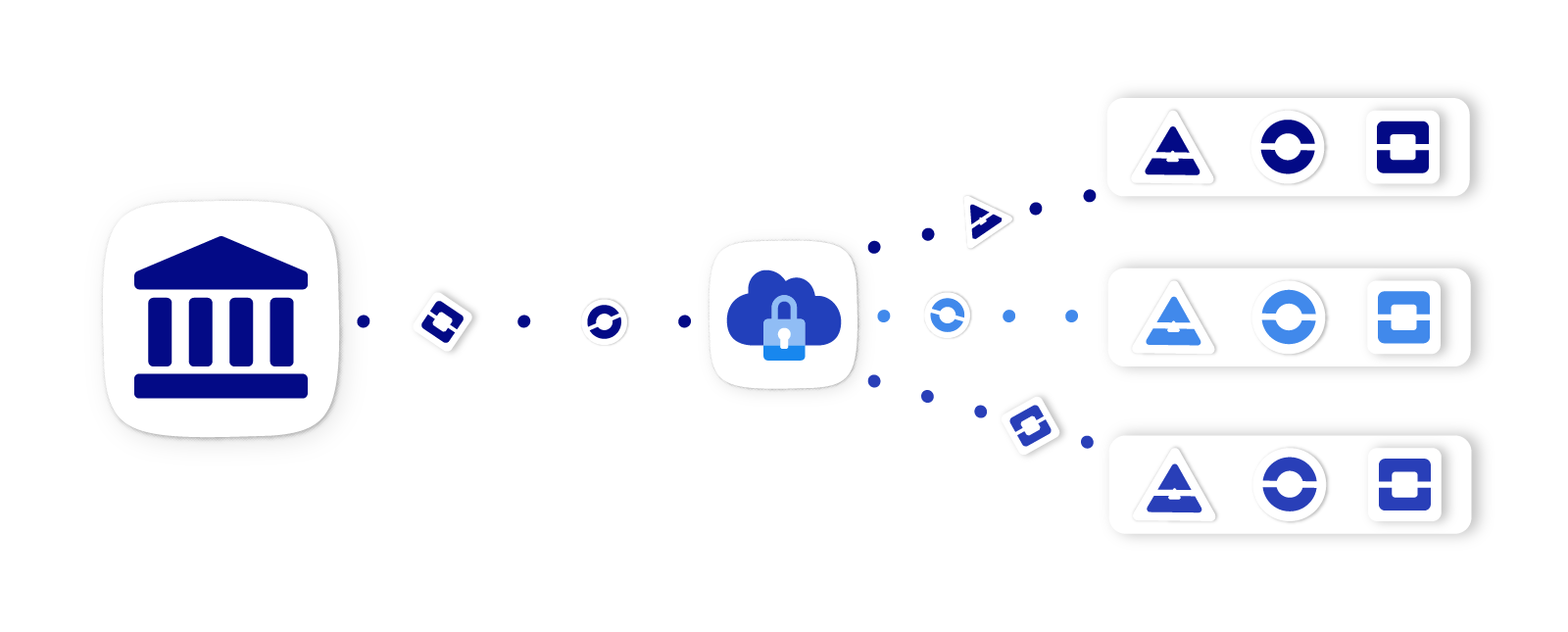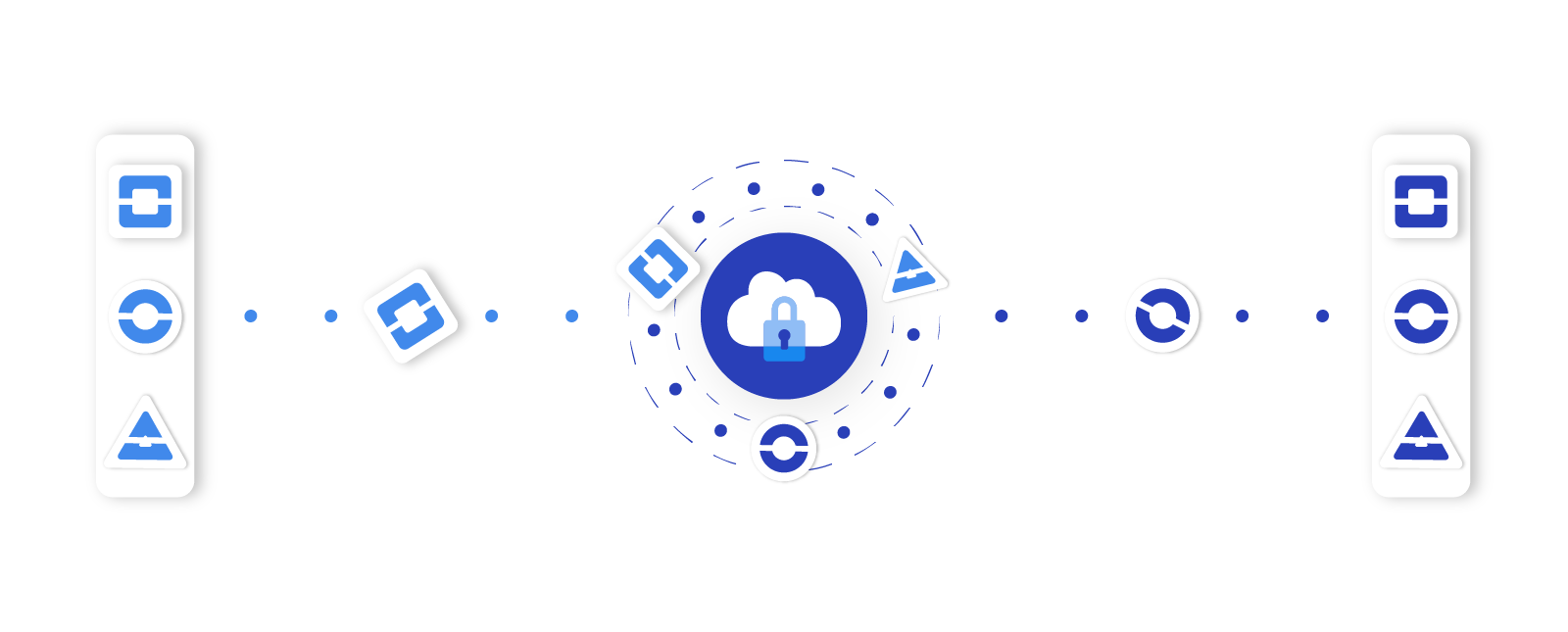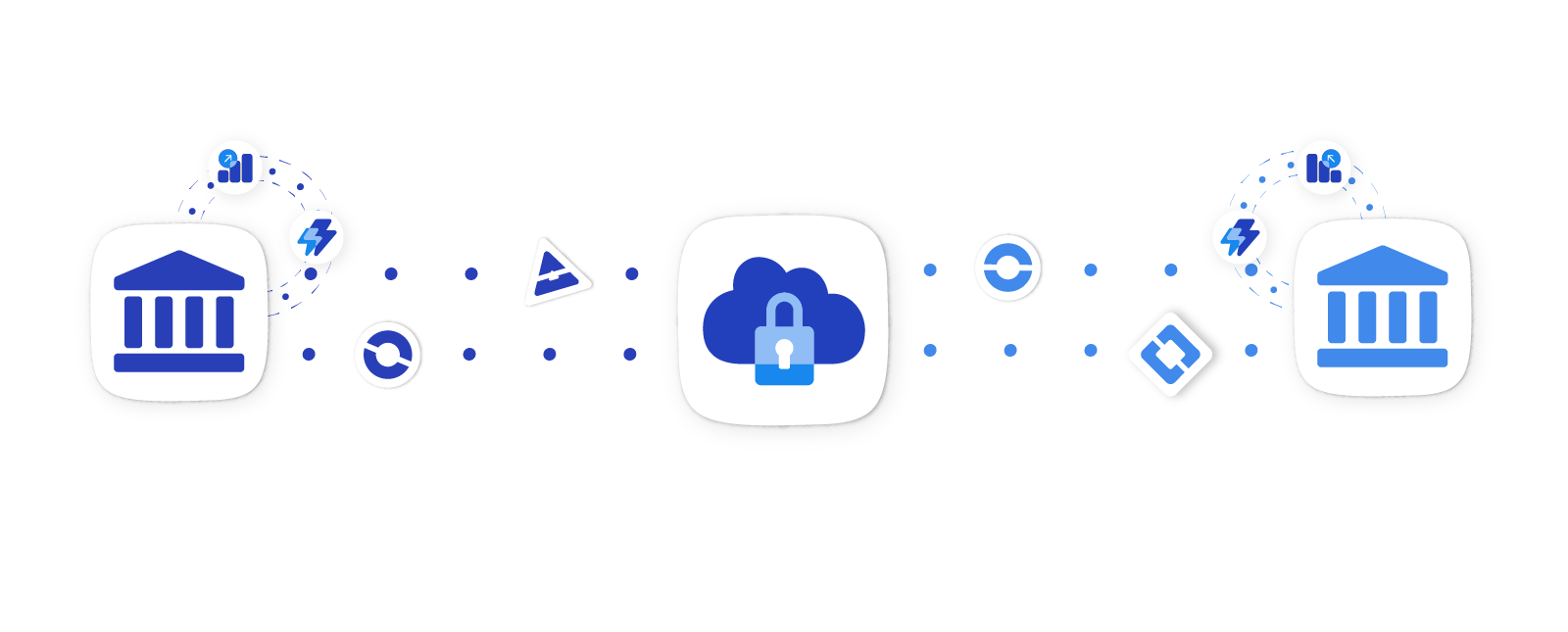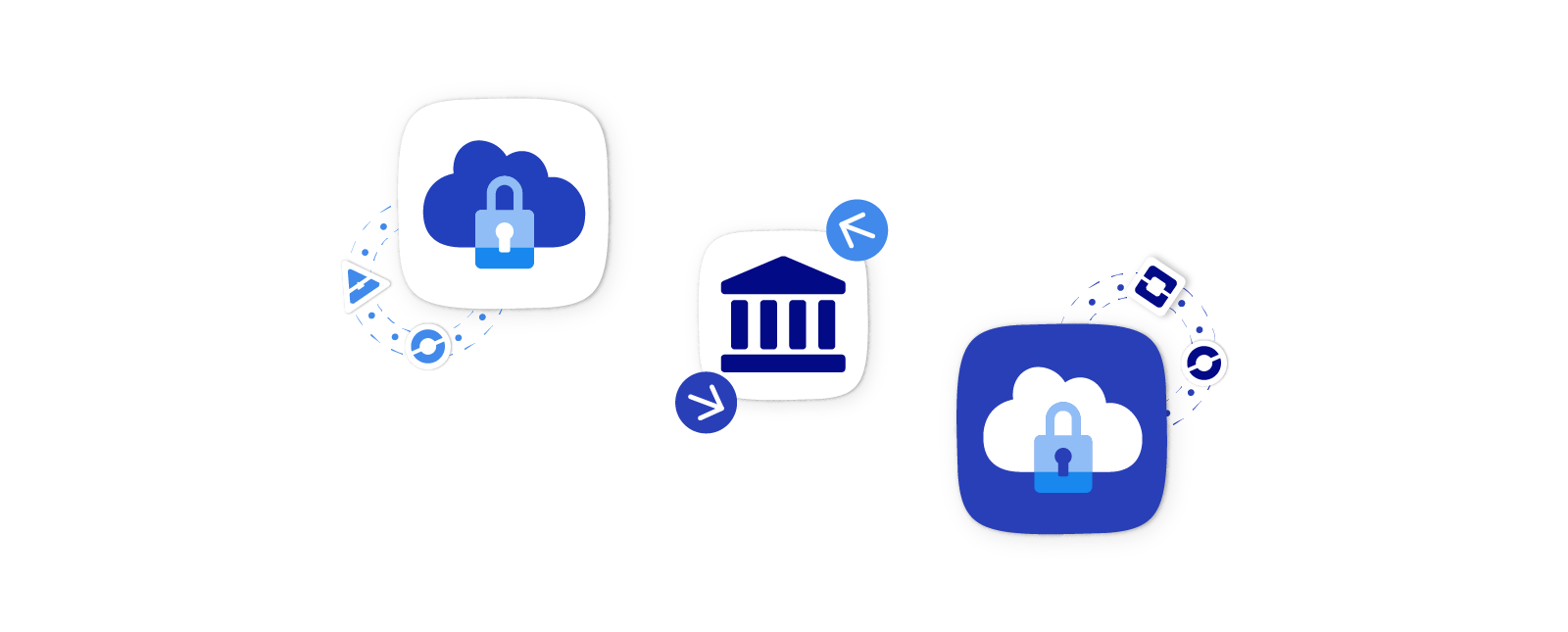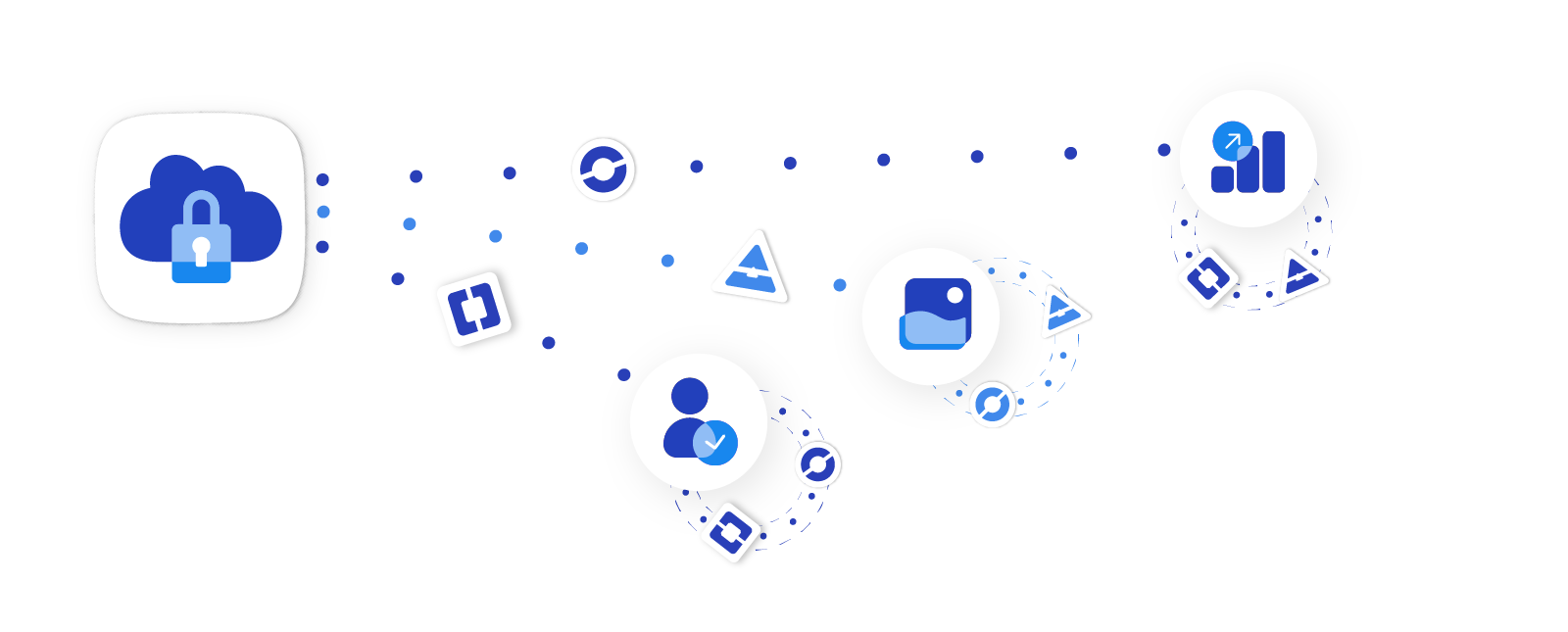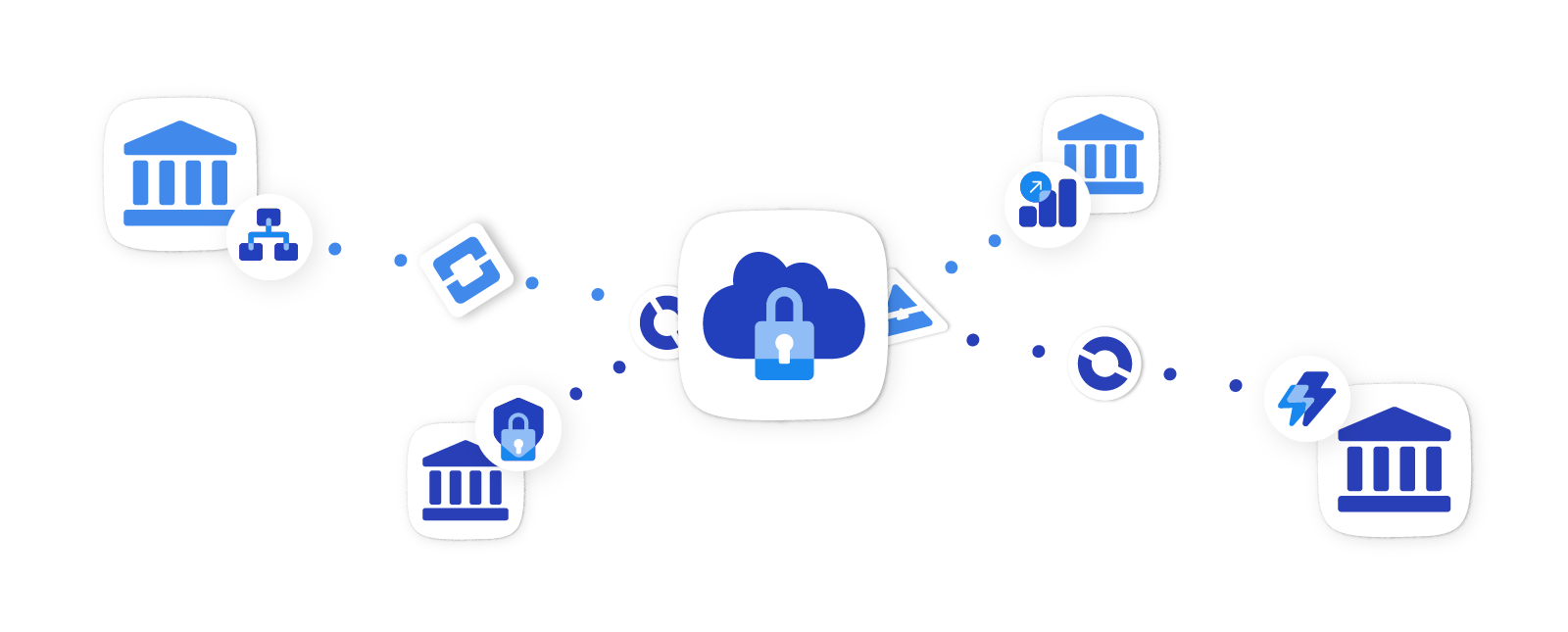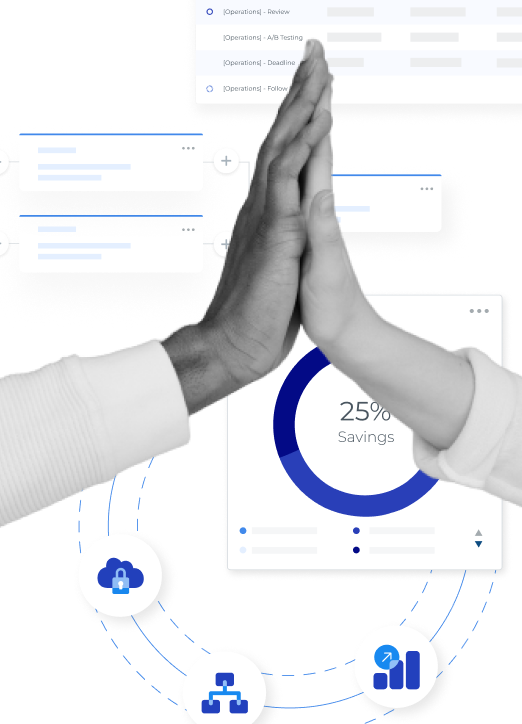Data is the backbone of modern businesses, but managing and using it effectively can be a complex task. With the explosive growth of data, businesses face several challenges, including data silos, quality issues, compliance, and scalability.
Fortunately, there’s a solution: Data Management as a Service (DMaaS). DMaaS is a cloud-based solution that enables businesses to streamline their data management efforts, ensure data quality and consistency, and scale their operations as their needs evolve.
In this comprehensive guide, we’ll cover all aspects of DMaaS, including its benefits and features and how businesses can leverage it to streamline their data management efforts.
Whether you’re a small startup or a large enterprise, this guide will provide the knowledge and insights you need to effectively leverage DMaaS and take your data management efforts to the next level.
What Is DMAAS?
DMAAS stands for Data Management as a Service, which refers to outsourcing data management tasks to a third-party provider. This service is becoming increasingly popular as organizations seek ways to streamline their operations and focus on their core business activities.
DMAAS is essentially a cloud-based service that provides users access to various data management services. This includes data storage, backup, and recovery, as well as data analytics, data security, and data governance.
By outsourcing these tasks to a third-party provider, organizations reduce their IT overheads and free up their internal resources to focus on more strategic initiatives.
The term DMAAS is often used interchangeably with Data Management Service or Data Service Management. Essentially, these terms all refer to the same thing—a service that enables organizations to manage their data more efficiently and effectively.
Be it storing data in the cloud, backing up critical data, or analyzing data to gain insights, DMAAS providers can help organizations leverage their data to drive business success.
Traditional Data Management Services vs. DMAAS
Traditional data management services and DMaaS share the goal of efficiently managing an organization’s data. However, DMaaS differentiates itself from traditional data management services in several ways, making it a more innovative and efficient solution for modern organizations.
One of the most significant differences is DMaaS’s cloud-based architecture, which leverages the scalability, flexibility, and cost-effectiveness of cloud computing.
Unlike traditional data management services that rely on on-premises infrastructure, it allows organizations to easily scale their data management infrastructure and adjust to fluctuating data volumes without significant upfront investments.
Another key advantage of DMaaS is its centralized management platform that consolidates various data management functions and streamlines processes, reducing the resources needed for managing data.
This contrasts with traditional data management services that typically involve separate tools and processes for different data management tasks, such as storage, backup, and analytics, leading to increased complexity and operational inefficiencies.
DMaaS also stands out by incorporating advanced technologies, such as AI and machine learning, to automate routine data management tasks and generate valuable insights. This helps organizations optimize their data management processes, uncover hidden patterns in their data, and make data-driven decisions more effectively.
Furthermore, DMaaS providers typically invest heavily in ensuring the highest levels of security and compliance for their services, offering features like data encryption, access controls, and regular security audits. As a result, organizations using DMaaS can benefit from robust security measures without managing these aspects in-house.
Lastly, the flexible pricing models of DMaaS, often using pay-as-you-go schemes, allow organizations to pay only for the resources they use. This results in significant cost savings and a lower total cost of ownership than traditional data management services, which often require upfront investments in hardware, software, and personnel.
Benefits of Data Management as a Service (DMAAS)
Organizations are constantly seeking ways to improve the efficiency, security, and cost-effectiveness of their data management processes. DMaaS has emerged as a compelling solution, offering many advantages over traditional data management approaches.
Let’s explore the numerous benefits of DMaaS and how it is revolutionizing how organizations manage and secure their data assets.
Scalability
Scalability is one of the most significant benefits of DMaaS, which makes it an attractive option for organizations of all sizes and across industries. As data volumes grow exponentially, efficiently scaling data management infrastructure becomes critical for businesses.
DMaaS addresses this challenge by providing a flexible cloud-based infrastructure, which enables organizations to easily scale their infrastructure up or down based on their needs.
The cloud-based architecture allows for seamless expansion of storage, processing, and analytics capabilities without significant upfront investments or lengthy procurement processes typically associated with on-premises solutions.
DMaaS also facilitates rapid provisioning and deployment, enabling organizations to quickly provision new resources or scale existing ones to accommodate fluctuating data volumes or increased data processing demands.
This agility in resource allocation allows businesses to adapt to ever-changing data needs and maintain optimal performance, further enhancing the scalability benefits of DMaaS.
Cost-Effectiveness
Cost-effectiveness is another significant benefit of DMaaS. It offers organizations a more affordable approach to managing their data assets.
Traditional data management solutions often require significant up-front investments in hardware, software, and personnel, creating financial barriers for smaller organizations or those with variable data management needs.
In contrast, since DMaaS leverages a cloud-based infrastructure and a pay-as-you-go pricing model, it eliminates the need for costly initial investments and allows businesses to pay only for the resources they use.
Additionally, DMaaS reduces the total cost of ownership associated with data management by streamlining operations and automating routine tasks. Consolidating various data management functions into a single, centralized platform minimizes the need for multiple tools and processes, resulting in lower operational costs.
Moreover, integrating advanced technologies helps automate routine data management tasks and optimize resource usage, leading to further cost savings.
Data Security
Data security is a crucial concern for organizations in the modern digital landscape, and DMaaS offers significant advantages in this regard.
DMaaS providers typically invest heavily in ensuring the highest levels of security for their services as they are entrusted with managing and protecting sensitive data assets. This includes data encryption, both in transit and at rest, access controls, and regular security audits.
By leveraging a DMaaS solution, organizations can benefit from robust security measures without managing these aspects in-house or investing in costly security infrastructure.
In addition to the security measures provided by DMaaS providers, the centralized nature of DMaaS also contributes to improved data security. Organizations can easily monitor and control access to their data, reducing the risk of unauthorized access or data breaches.
DMaaS platforms also often include advanced security features such as role-based access controls, multi-factor authentication, and activity monitoring, further enhancing the security of an organization’s data.
How DMAAS Helps Businesses
DMaaS enables businesses to focus on their core competencies by outsourcing data management tasks to specialized providers, freeing up valuable time and resources within the organization.
This approach allows them to concentrate on strategic initiatives, such as product development, market expansion, or customer service improvement, without getting bogged down by the intricacies of managing data infrastructure.
In addition, DMaaS grants organizations access to the extensive expertise of service providers in data management, security, and compliance, eliminating the need to recruit, train, and retain specialized personnel. As a result, they can accelerate their innovation processes and leverage data insights more effectively to drive growth and improve operations.
By relying on DMaaS providers to ensure the security, availability, and compliance of their data management services, organizations can mitigate risks associated with data breaches, data loss, or regulatory non-compliance. This allows them to concentrate on their core functions with greater confidence.
Moreover, DMaaS solutions are inherently flexible and can be easily adjusted to accommodate changing business needs. This adaptability empowers organizations to respond quickly to new market conditions or evolving customer requirements without overhauling their data management infrastructure.
Defining Features of DMAAS
DMaaS encompasses a wide range of features that streamline and enhance an organization’s data management processes. These key features work together to create a comprehensive solution that addresses various aspects of data management.
Data Storage
DMaaS provides scalable and flexible data storage solutions to accommodate the growing volumes of data organizations generate. These storage solutions are designed to handle different types of data, such as structured, semi-structured, and unstructured data, ensuring that businesses can securely store and access their data assets as needed.
The cloud-based nature of DMaaS storage allows organizations to easily scale their storage capacity up or down based on their requirements without significant upfront investments.
Data Processing
Efficient data processing is crucial for organizations to derive meaningful insights from their data assets. DMaaS offers a wide range of data processing capabilities, such as data ingestion, transformation, and normalization, to ensure readily available data for analysis.
By automating many of these data processing tasks, it helps organizations save time and resources while improving the quality and consistency of their data.
Data Analytics
DMaaS provides advanced analytics tools and services that enable organizations to uncover valuable insights from their data. These include descriptive, diagnostic, predictive, and prescriptive analytics capabilities that help them understand past trends, identify the root causes of issues, forecast future outcomes, and recommend optimal actions.
By offering a unified platform for data analytics, DMaaS makes it easier for organizations to leverage their data assets for decision-making and strategic planning.
Automation & AI
Automation and AI enhance efficiency and streamline various data management tasks. By integrating these advanced technologies, DMAAS providers optimize their services, empowering organizations to fully harness their data’s potential.
Automation and AI contribute to several aspects of DMAAS, including data processing, analytics, classification, organization, and security. Automated tasks reduce manual effort and human errors, ensuring better data quality and consistency, while AI-driven analytics facilitate rapid data-driven decision-making by identifying patterns and trends in large datasets.
Additionally, AI algorithms enable automatic categorization and organization of data, simplifying storage and management. AI-driven monitoring and alerting systems detect unusual patterns, enabling prompt issue resolution, while AI’s role in predictive maintenance and resource optimization maintains optimal performance and cost-efficiency.
By integrating automation and AI, DMAAS significantly improves efficiency across data management tasks, helping organizations derive maximum value from their data assets.
Data Compliance & Governance
Data compliance and governance ensure organizations adhere to legal, regulatory, and ethical standards while managing their data. Compliance with data protection laws, such as GDPR and CCPA, is vital for maintaining customers’ trust and avoiding costly penalties.
DMAAS providers implement robust data governance policies, including access controls, data lineage, and audit trails, to help organizations monitor and control their data usage, storage, and sharing. These policies minimize the risk of data breaches and unauthorized access while promoting transparency and accountability.
By prioritizing data compliance and governance in DMAAS, businesses can safeguard their sensitive information, maintain customer trust, and operate within industry regulations and standards.
How to Choose the Right DMAAS Provider
Selecting the right DMaaS provider is crucial for ensuring that your organization’s data management needs are met effectively and efficiently. Here are some tips to help you choose the right provider:
- Evaluate their experience: Look for a provider with a proven track record in managing data for organizations similar to yours in size, industry, and data complexity. Providers with relevant experience are likely to better understand your business’s specific challenges and requirements.
- Assess their expertise: Make sure the provider has the necessary technical expertise and a strong team of data management professionals. This includes expertise in data storage, processing, analytics, compliance, and security.A provider with a wide range of expertise can offer comprehensive and tailored solutions for your organization’s data management needs.
- Analyze the cost structure: Compare the pricing models of different DMaaS providers to find one that aligns with your budget and offers the best value. Keep in mind that the cheapest option may not always be the best. Consider scalability, additional features, and support when evaluating the overall cost.
- Check for compliance and security: Ensure the provider adheres to industry-specific regulations and data protection standards, such as GDPR, HIPAA, or PCI-DSS. Also, evaluate the security measures they have in place, such as data encryption, access controls, and regular security audits, to safeguard your sensitive data assets.
- Scalability and flexibility: Choose a provider that offers scalable and flexible solutions that can grow with your organization’s data needs. It should be able to easily scale storage capacity, processing power, and analytics capabilities based on your requirements.
- Assess integration capabilities: The DMaaS provider should be able to seamlessly integrate with your existing IT infrastructure, including applications, databases, and other data sources. This ensures a smooth transition and minimizes disruptions to your business operations.
- Test customer support and responsiveness: A reliable DMaaS provider should offer exceptional customer support, with responsive and knowledgeable representatives available to address your concerns and queries.Exceptional customer support ensures that your organization receives prompt assistance and guidance in addressing any issues, concerns, or queries that may arise while using the DMaaS platform. Test their support channels, such as email, phone, and live chat, to gauge their responsiveness and expertise before making a decision.
- Review service-level agreements (SLAs): Before selecting a DMaaS provider, carefully review their SLA, which outlines the provider’s commitment to specific service standards and performance metrics. SLAs typically address aspects such as uptime, response times, data recovery objectives, and data durability.A robust SLA demonstrates the provider’s confidence to deliver consistent, reliable service and helps establish clear expectations for both parties. Additionally, it is essential to evaluate the penalties or remedies in case the provider fails to meet the agreed-upon SLAs as this can provide protection and assurance for your organization.
- Request references and case studies: Ask the DMaaS provider for references and case studies that demonstrate their experience and success in managing data for other organizations. This can help you better understand their capabilities and make an informed decision.
By considering these factors, you can select a DMaaS provider that meets your organization’s data management needs, offers the necessary expertise and experience, and provides a cost-effective solution. Remember, the right provider can significantly impact the success of your data management strategy and help drive your business forward.
Real-World DMAAS Use Cases
Businesses across various industries have leveraged DMaaS) to drive growth and improve decision-making. Companies that successfully implement DMaaS include Coca-Cola, General Electric, Nestle, and BMW.
Coca-Cola partnered with a DMaaS provider to manage its data from multiple sources, including sales, social media, and customer data. By utilizing DMaaS, Coca-Cola gained a comprehensive view of its customers and tailored its marketing and advertising strategies accordingly, which resulted in improved customer engagement and increased sales.
General Electric implemented a DMaaS solution to optimize its supply chain operations. The DMaaS platform enabled the company to centralize and analyze data from suppliers, production facilities, and distribution centers.
With this data, GE could identify areas of inefficiency, such as production delays or inventory shortages, and take corrective action in real-time. These improvements in supply chain efficiency led to cost savings and increased revenue.
Nestle implemented a DMaaS solution to manage and analyze data from its production facilities, supply chain, and distribution channels. It enabled the food and beverage giant to gain insights into consumer preferences, supply chain efficiency, and product quality.
With this data, Nestle could optimize its operations, improve product quality, and develop new products to meet changing consumer needs.
German carmaker BMW adopted a DMaaS solution to manage and analyze data from its production facilities and supply chain. With it, BMW could optimize its manufacturing processes, reduce waste, and improve product quality.
Additionally, it utilized DMaaS to analyze customer data and tailor its marketing and advertising strategies, resulting in improved customer engagement and increased sales.
These examples demonstrate the versatility and effectiveness of DMaaS in driving growth and improving decision-making across various industries.
DMAAS in Healthcare
DMaaS plays a critical role in healthcare data management. It enables organizations to store, manage, and analyze vast amounts of patient data securely and efficiently.
One primary use of DMaaS in healthcare is electronic health records (EHRs). DMaaS providers offer cloud-based solutions for storing and managing electronic health records, including patient medical histories, test results, and treatment plans.
With DMaaS, healthcare providers can ensure data accuracy, availability, and security while complying with regulatory standards such as HIPAA.
Another use of DMaaS is population health management. DMaaS platforms can analyze patient data from multiple sources, such as EHRs, claims data, and social determinants of health. This data can be used to identify at-risk populations, monitor chronic conditions, and develop targeted interventions to improve health outcomes.
DMaaS solutions are also used to streamline the clinical trial process. DMaaS provides a centralized platform for managing trial data, including patient recruitment, consent, and data collection. With it, clinical trial sponsors can efficiently manage trial data, monitor participant safety, and comply with regulatory standards.
Lastly, DMaaS is used for predictive analytics in healthcare. By analyzing patient data, DMaaS can identify patterns and predict patient outcomes. Predictive analytics can identify patients at risk of readmission, enabling healthcare providers to intervene proactively and prevent costly readmissions.
Therefore, DMaaS is an essential tool in healthcare for storing, managing, and analyzing patient data.
DMAAS in Finance
In the financial industry, DMaaS has become increasingly important for managing vast amounts of financial data securely and efficiently.
One of its significant uses in finance is risk management. DMaaS solutions provide real-time data analysis to identify and manage potential risks, allowing financial organizations to track and analyze complex data sets, such as market data, credit risk, and liquidity risk, and make more informed decisions about their investment strategies and overall risk management.
Another use of DMaaS in finance is compliance. Financial organizations must comply with various regulatory standards, such as the Dodd-Frank Act, the Basel III Accord, and the Sarbanes-Oxley Act. DMaaS solutions can help them comply with these regulations by centralizing data management and ensuring data accuracy and security.
DMaaS platforms are also used in investment management to manage and analyze investment data, including market data, financial statements, and investor preferences. By using DMaaS, financial organizations can make informed investment decisions, optimize investment portfolios, and improve investment returns.
Finally, DMaaS is used in fraud detection by analyzing large amounts of financial data to identify suspicious transactions or patterns. This enables financial organizations to proactively identify potential fraud and take corrective action before significant losses occur.
DMAAS in Retail
DMaaS is also an essential tool for retail businesses, allowing them to manage and analyze large amounts of data from various sources, including sales, inventory, and customer data.
One use of DMaaS in retail is customer analytics. DMaaS solutions can analyze customer data to gain insights into consumer behavior, preferences, and trends. This data can be used to optimize marketing strategies, develop targeted promotions, and improve customer engagement and loyalty.
Another use of DMaaS in retail is supply chain management. DMaaS can be used to manage and analyze inventory data to optimize supply chain operations. With DMaaS, retailers can improve inventory accuracy, reduce stock-outs, and streamline ordering and delivery processes.
DMaaS platforms are also used in sales analytics. They can analyze sales data to identify trends and patterns in consumer behavior, sales performance, and product popularity so retailers can optimize pricing strategies, product placement, and promotions.
Lastly, DMaaS solutions can be used to manage and analyze e-commerce data, including website traffic, customer behavior, and order data, which enables retailers to optimize e-commerce operations, improve customer experience, and increase online sales.
DMAAS’s Role in Master Data Management
Master data management (MDM) is a comprehensive approach to managing an organization’s critical data assets, such as customer, product, and financial data.
MDM enables organizations to establish a single, reliable source of truth for their critical data, ensuring that it is accurate, consistent, and up to date across all systems and applications. It can help organizations improve data quality, increase operational efficiency, and make better-informed business decisions.
However, traditional MDM solutions can present significant challenges for businesses, such as data silos, data quality issues, and high costs.
Data silos occur when different departments or systems maintain their own data sets, leading to inconsistencies and data duplication. This can result in poor data quality, making it difficult for organizations to make informed business decisions.
Additionally, traditional MDM solutions can be costly and time-consuming to implement, often requiring significant upfront investments in hardware, software, and personnel.
DMaaS can help businesses overcome these challenges by providing a centralized cloud-based platform for MDM. Here are some key aspects of DMaaS that contribute to effective MDM:
Data Integration
DMaaS can streamline the process of integrating data from multiple sources by providing a centralized platform for data integration.
It enables organizations to consolidate data from various sources, such as customer, product, and financial data, into a single, reliable source of truth, which eliminates data silos and ensures consistency and accuracy across all systems and applications. DMaaS platforms easily integrate with existing systems and applications, reducing implementation time and costs.
In addition, DMaaS solutions include data quality tools and services that can help organizations proactively identify and correct data quality issues. These tools can automatically standardize data formats, validate data against established rules, and flag potential data errors for review.
This helps organizations ensure accurate and consistent data, reducing the risk of making decisions based on incorrect or incomplete data.
Data Cleansing and Enrichment
DMaaS enables businesses to identify and resolve data quality issues by providing data quality tools and services. These tools can automatically detect and flag data quality issues, such as duplicates, missing values, and inaccuracies, for review and correction.
By leveraging DMaaS for data quality, businesses can improve the accuracy, completeness, and consistency of their master data, leading to more reliable decision-making and better business outcomes.
DMaaS also enables businesses to enrich their data by adding attributes or fields to existing data sets. This provides valuable insights into customer behavior, market trends, and other key business metrics, enabling them to make more informed decisions.
DMaaS solutions also provide real-time data quality monitoring so they can identify and resolve data quality issues as they arise.
Data Governance
DMaaS enforces data governance policies by providing a framework for managing and implementing data access controls, data lineage, and audit trails. DMaaS solutions enable businesses to define and enforce data access controls, ensuring that only authorized users can access sensitive data.
DMaaS platforms also provide data lineage capabilities, allowing businesses to track the origin and movement of data throughout the organization. This ensures the organization’s compliance with regulatory requirements, such as GDPR and HIPAA, and mitigates the risks associated with data breaches.
DMaaS solutions also typically include audit trail capabilities, providing a detailed record of all data access and modification activities. This enables businesses to track who accessed data, when they accessed it, and what changes were made, providing an additional layer of security, and ensuring all data activities are traceable and auditable.
Scalability and Flexibility
One of the key benefits of DMaaS is its cloud-based nature, which enables businesses to easily scale their MDM efforts as their data needs grow without incurring additional infrastructure costs.
DMaaS solutions typically provide a subscription-based model, so businesses only pay for the services and storage they need. They no longer need significant up-front investments in hardware, software, and personnel, making it easier to scale their MDM efforts as their data needs evolve.
DMaaS solutions also provide the flexibility to scale up or down based on business requirements, enabling businesses to add or reduce storage and processing capacity as needed. This allows them to respond quickly to changing business needs, such as mergers and acquisitions.
Final Thoughts: Data Management as a Service
DMaaS is a powerful solution that can help businesses of all sizes and industries leverage their data to drive success.
It enables organizations to establish a single, reliable source of truth for their data, ensuring consistency and accuracy across all systems and applications. It also allows businesses to scale their data management efforts as their needs evolve while freeing valuable resources and time to focus on strategic initiatives.
With DMaaS, businesses can improve operational efficiency, make better-informed decisions, and ultimately drive growth and success. Therefore, businesses must consider DMaaS as a viable solution for their data management needs to stay competitive and succeed in the rapidly evolving business landscape.
Experience the benefits of DMAAS and revolutionize how you handle your data with Kizen. Our cutting-edge DMAAS solution offers seamless data integration, robust data governance, and unparalleled scalability, ensuring your organization can easily make data-driven decisions. Simply connect with us on our website so that we can schedule a time to chat.


